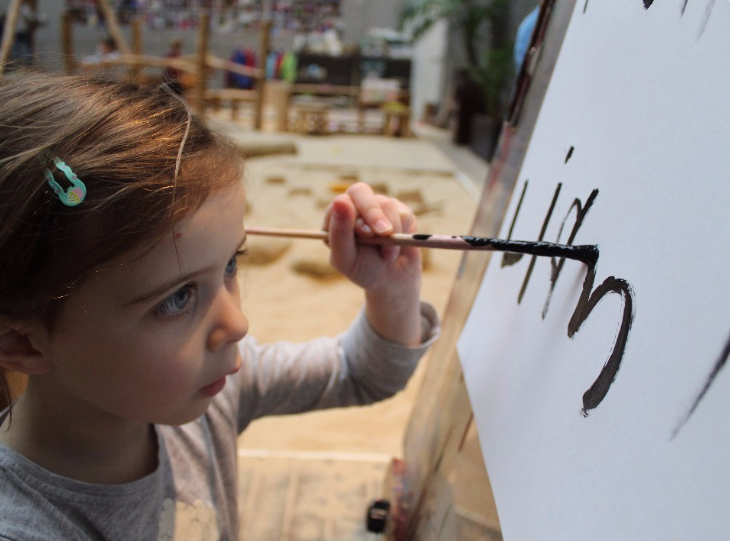Documentation
Heard the word documentation, but not quite sure what it means and what kind of information you should expect to receive from your child's centre each day? This is the post for you!
If you are already enrolled in an early learning centre, you may have seen photographs with annotations or children's artwork on the walls in your centre. You may also subscribe to an app or parent portal where you get pictures of your child's experiences each day. In early learning speak this is called 'documentation', 'evidence' or 'assessment'.
There is no rule about what 'good' or 'bad' documentation looks like and all services approach it differently. This post will explain the approach that Futuro takes to documenting learning and the rationale for that approach.
What is documentation?
Documentation has been defined as ‘the practice of observing, recording, interpreting and sharing through a variety of media, the processes and products of teaching and learning in order to deepen learning’ (Project Zero, Harvard University).
For families, it's a window into their children's daily experiences and gives you something specific to talk to your child about at the end of the day.
For children, it illuminates their lived experiences. It represents the ideas and experiences of children and evidences the value that the learning community places on those ideas and experiences. It also provides an opportunity for children to revisit their ideas and experiences, which is critical for learning.
For Educators, documentation evidences children's progress through a programme of inquiry and will form the basis of future programming and planning. This isn't a linear process. Educators don't set a programme of inquiry and tick boxes as children progress through each stage, young children simply don't learn in this way. It is (and it has to be) a much more organic and dynamic process.
Isn't this just more paperwork?
No! It's fundamentally important to the work that we do as Educators.
Documentation doesn't only support teaching, it supports learning. It is beneficial for children to see their work on display, providing opportunities to reflect upon and consolidate their learning, and to inform their decision making on future learning opportunities.

(Image credit: Rebecca Mouat, 2018)
Documentation for the sake of documentation
All centres in Australia are regularly assessed by the Department of Education in their state or territory. This process is called 'Assessment and Rating'. When centres are assessed, they are assessed against the National Quality Standard.
As a profession, we are passionate about providing children with the highest possible standard of education and care. This means that our teams are really invested in achieving a good result at Assessment and Rating. Assessors will review documentation as part of the Assessment and Rating process which means that there can be a temptation to over-document in an effort to achieve the best possible rating. However, what can happen is that the documentation itself becomes fairly meaningless and the work to produce it becomes less intentional, less reflective, and more of a box-ticking exercise.
Futuro's approach to documentation
Documentation for the sake of documentation does not inform learning and teaching. What it does is create a substantial unnecessary workload for Educators and contributes significantly to stress and burnout.
What this means is that you will receive short regular snapshots of your child's learning at Futuro. Most of our effort will go into documentation displayed in the learning environment (that will benefit both children and families), and into a more lengthy and detailed summative assessment at the end of each term. This summative assessment will be used as a tool for reflection by our Educators and will inform the collaborative process of programming and planning.
But… the walls are bare
In a new centre, documentation takes time to develop (if you do it right!). As we collectively and collaboratively 'tune in' to each child's needs, interests and identities, we will gradually build up a body of documentation evidencing this understanding. It will, however, take time.
This journey is organic and dynamic, meaning that progress will be variable subject to how children settle into their new care arrangements and the relationships they build over time with Educators and other children.

(Image credit: Rebecca Mouat, 2018)
Your involvement
Families are the child's first and most important teacher.
When we say that we value your input – we really mean it! It genuinely helps us to do our jobs. We encourage your involvement in your child's learning journey and encourage you to communicate with us about your child's evolving interests or special talents. There are many ways that you can do this:
- Conversations with our team
- In-person meetings with our Centre Manager
- Through our parent portal, Owna
- By email or telephone
- Surveys (we will circulate surveys from time to time on specific topics)
As always, if you have any questions, please don't hesitate to ask a member of our friendly team or reach out to us at enquiries@futuro.nsw.edu.au!

